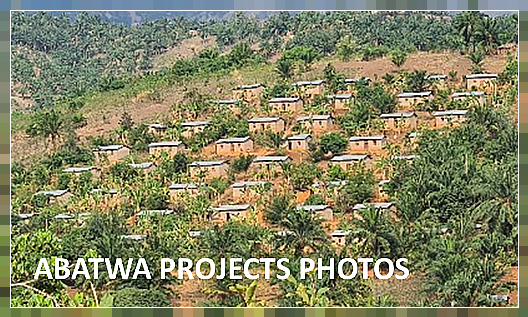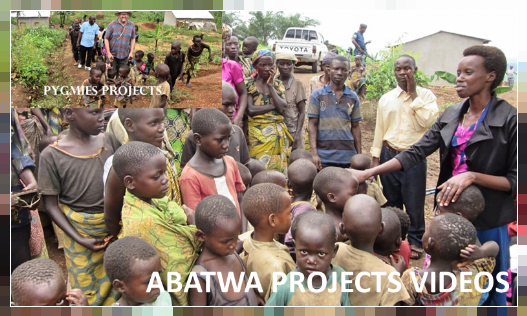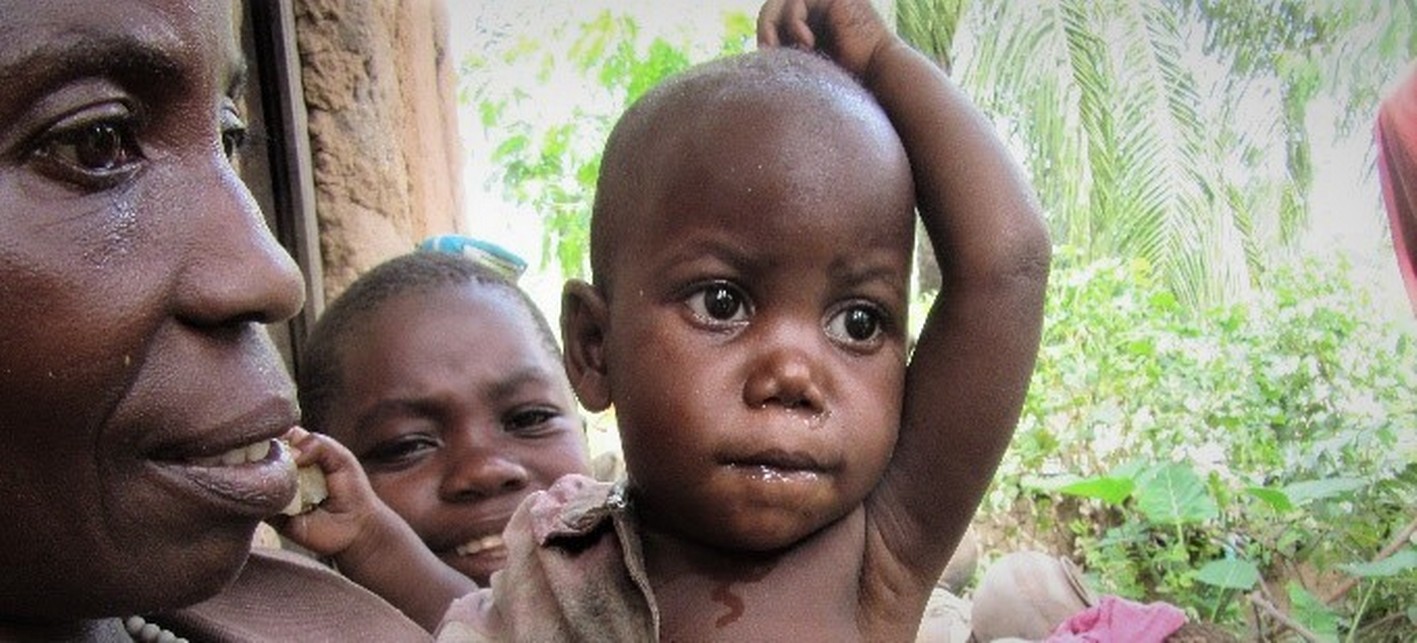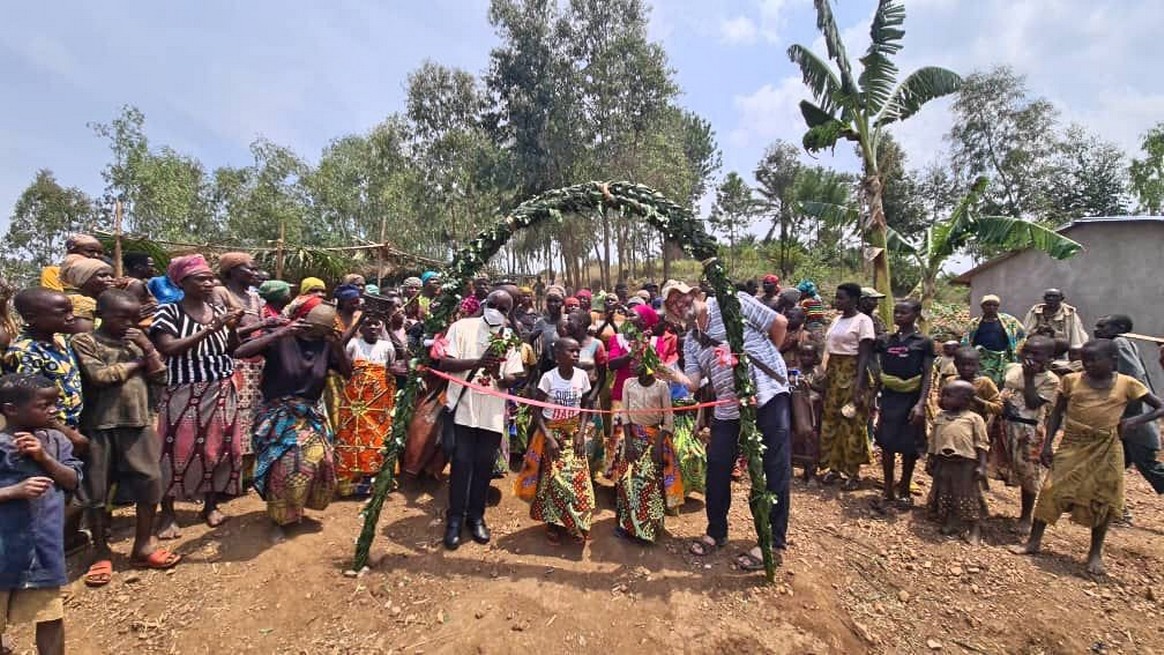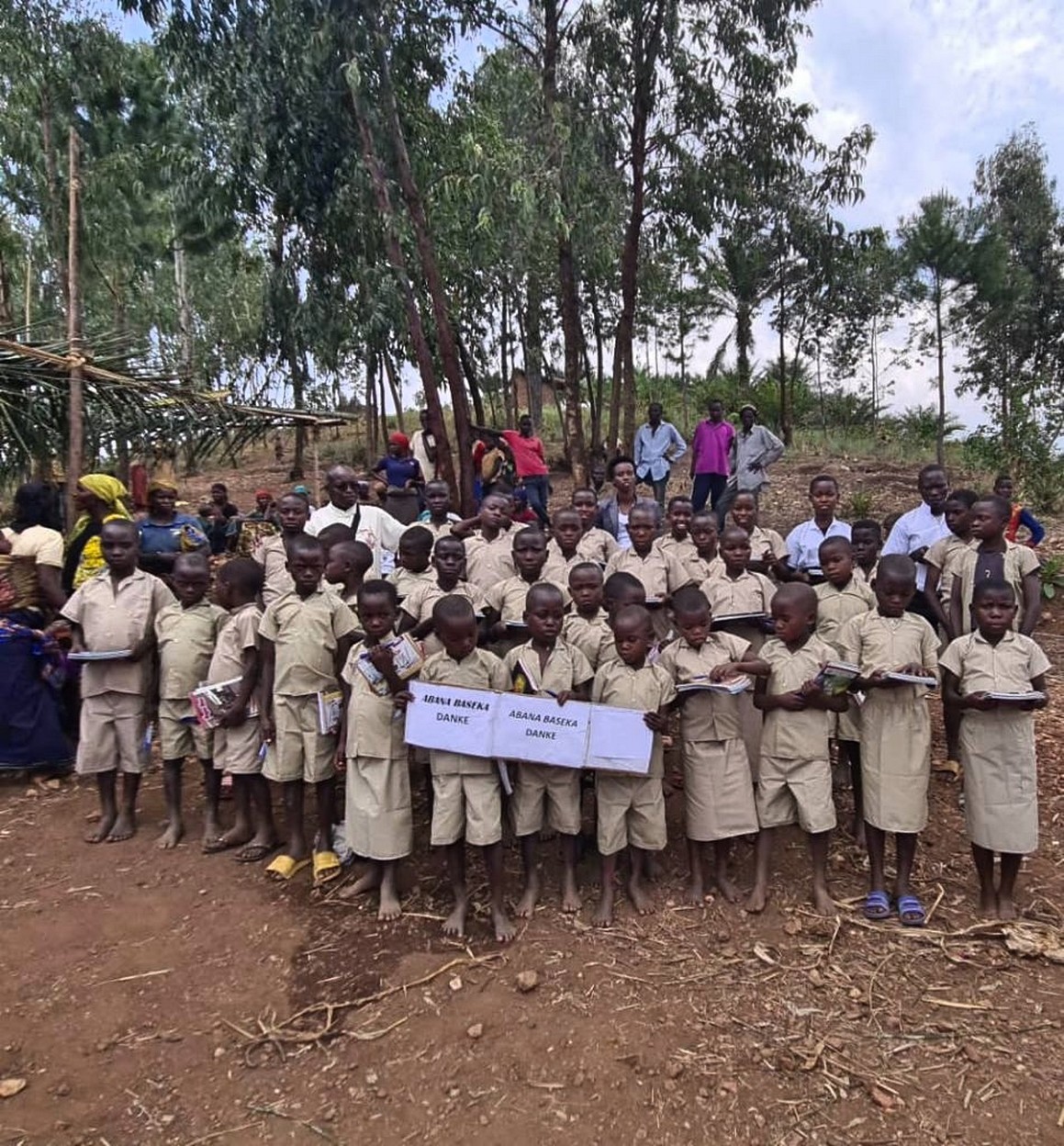Pygmies` Projects
Projects > Bujumbura
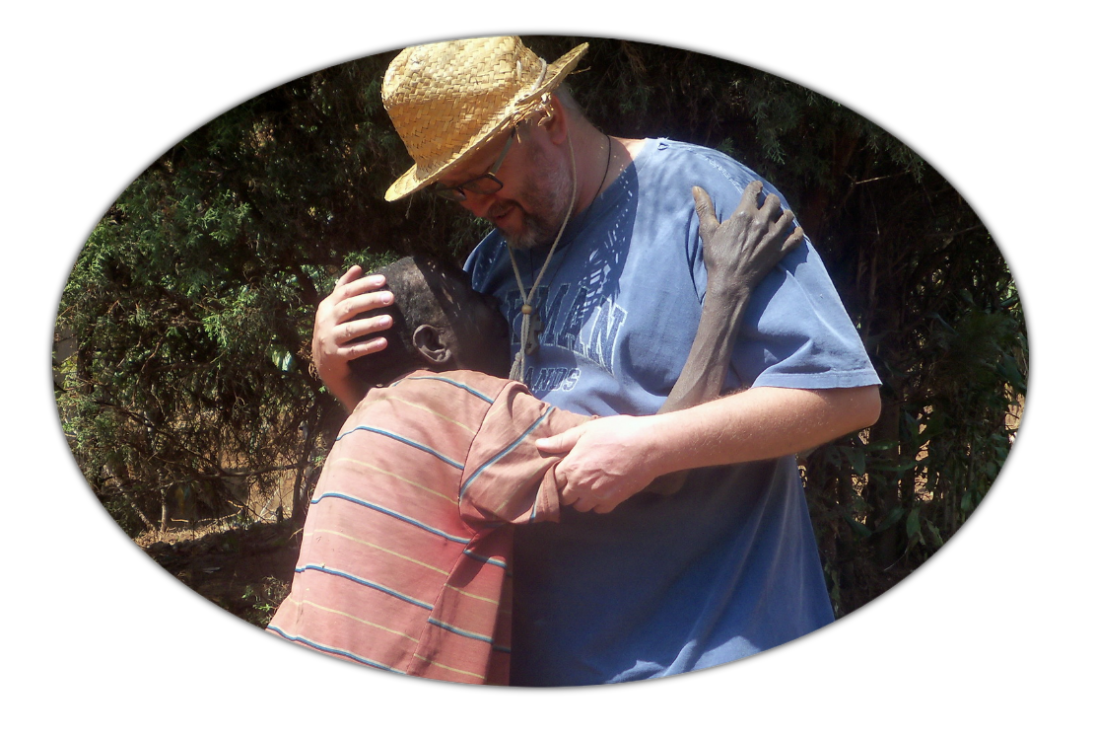
Carmelite commitment
in favour of the BATWA people
In Burundi the batwa people is recognized like third ethnic group next to the hutu and tutsi. For a long time, they are estimated to 1% of the population. They live among them in promiscuity, practice endogamy, and live aside from the others in an extreme poverty. In the popular mentality a lot of prejudices circulate about them. They are considered lazy and thieving, ready to be enrolled by the members of the other ethnic groups in murders of settling of accounts. They are marginalized. Usually, no one deigns to share food or drinking with them. They are discriminated in all domains: education, employment, health care, representation and involvement in Public life. They live in conditions that insult the conscience of the human dignity in terms of food, habitat, hygiene, clothing and education. Even worse, they have assumed this social inferiority during a long time. Read more:
Interesting links on the OCD Batwa project in Burudni:
Inauguration des 55 maisons construites pour et par les autochtones (Abasangwabutaka), les Batwa, les PygmésLe 30 septembre : inauguration des 55 maisons construite par les autochtones (Abasangwabutaka), nom sous lequel les batwa sont désignés et se reconnaissent.Le projet de la Communauté de Bujumbura, en l'occurrence le père Mathias, soutenu par de nombreux bienfaiteurs dont ceux de "Abana baseka" et avecl'appui local de Monsieur Hermenegilde Nijimbere.Cette oeuvre, qui n'est pas l'unique mais qui est hautement significative, traduit notre solidarité envers les pauvres, sous la forme de la participationà la libération de l'homme des formes de l'esclavage clntemporain qui est plus une condition de vie qu'un statut social. 50 ans de présence des Carmesau Burundi et au Rwanda 50 maisons de personnes pauvres et vulnérables construites au cours de l'année jubilaire : motif de joie et de fierté pourcette réponse à l'appel de Jésus rencontré dans l'oraison qui envoie à le rencontrer dans le visage défiguré de nos frères et soeurs.Merci à tous ceux qui collaborent avec le Seigneur en cette oeuvre et à d'autres semblables dans nos communautés, même si ce n'est toujours qu'une gouttedans l'océan de la misère qui nous entoure !Le village Ceni est le deuxième avec des maisons construites de cette manière après celui de Musenyi qui compte déjà 68 maisons.L'initiative concernant l'habitat décent continuera ensemble avec d'autres efforts de recherche de promotion et de stabilisation de nos frères autochtones :assurance modeste des soins de santé, scolarisation des enfants, auto-prise en charge notamment par l'agriculture.Source des photo: https://www.abana-baseka.de/2021/10/01/55-haeuser-in-burundi-an-familien-uebergeben/
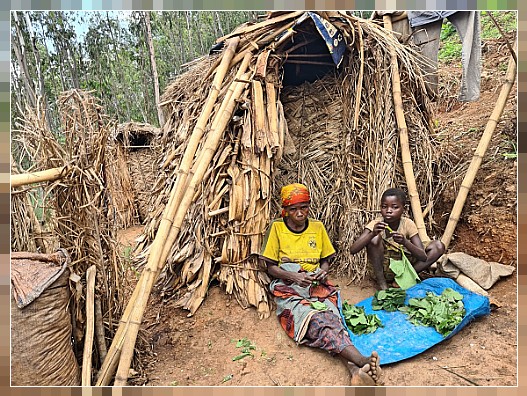
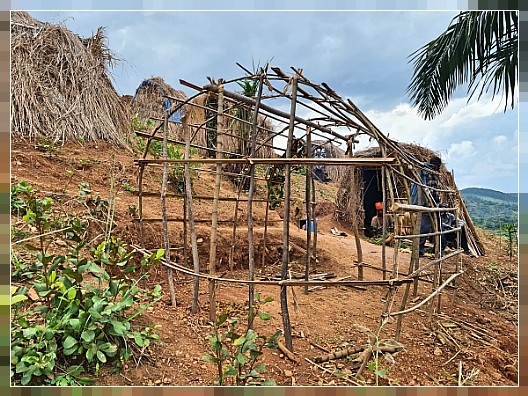
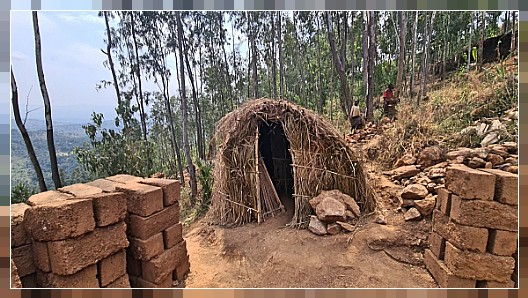
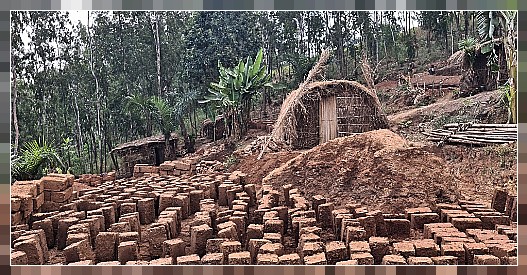
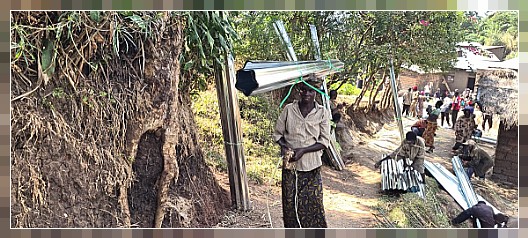
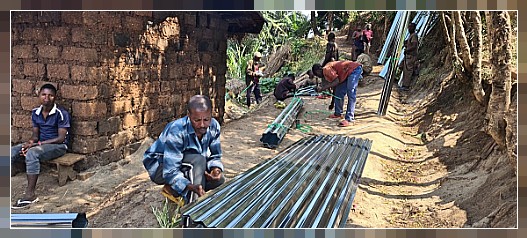
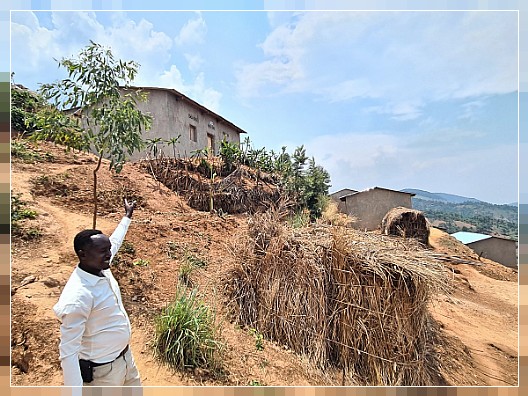
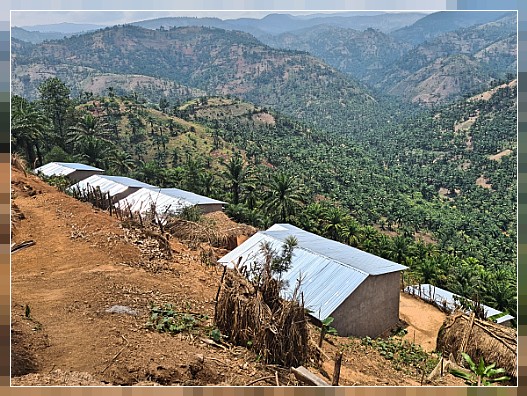
Abatwa (Pygmies) project in Burundi - genral presentation
Burundi, with a GDP per capita of USD 312, is one of the lowest in the world. In comparison, Germany reaches 44,500 USD and Poland 13,800 USD. However, among the poor, they are even poorer. I am thinking of pygmies here in Burundi. People who lost their world were left with potting pots, but the modern world has escaped and it will be difficult to catch up. But we have to do what we can.
As Discalced Carmelites, we have been conducting the mission in Burundi since 1971. The social structure of this country is as follows: 80% Hutu, 18% Tutsi, 1-2% Batwa (pygmies), rejected tribe. There is often issue of wars between Hutus and Tutsis but pygmies are completely forgotten.
The social exclusion of pygmy minorities is dramatically increasing, leading to numerous cases of slavery. Despite the widespread poverty, two leading ethnic groups are slowly developing, while pygmies remain more and more marginalized and excluded. As Discalced Carmelites and their associates, we've been working in the field for 49 years, knowing the culture and language, we have animators who know the issues and mentality of the pygmy community. As part of the ABATWA association, we undertake the task of gradually reintegrating excluded pygmies. Gradual reintegration includes the challenge of literacy of children, basic issues of agriculture, construction of houses for large families living in huts.
Hardly anyone graduated from primary school among pygmies, most are illiterate.
After expelling various aid organizations as Carmelites, we took care of 10 such villages, where about 611 families live, living in the following settlements: Nyagatobe (60), Gifugwe / Ikibambwe (55), Musenyi (68), Kukabami (52), Kabezi (31), Kiyenzi (116), Busekera (71), Giko (38), Mubuga (80), Nyenharange (40)
We divide work with them into subsequent stages:
1. Awareness of the need for education, hygiene and principles of cooperation with the Disclalced Carmelites
2. Basics of breeding
3. Basics of agriculture
4. Construction of houses and toilets
5. Purchase of health insurance
Basic ideas of the upcoming phases of the project to accompany the pygmies:
1. In April 2019, representatives of these villages will begin training on how to work with us to help gradually overcome poverty. In this educational project, we have started cooperation with the Polish Ministry of Foreign Affairs. We finish this phase in June.
2. As part of the breeding basics, we launch a project - a Lenten goat for the family. Details in the project. Start regardless of the season.
3. As part of the basics of agriculture, the next project will be planting fruit trees, then gradually obtaining small plots and sowing beans, manioc, corn and local cereals that are popular here.
4. As part of helping to build houses, large families will be chosen who live in shacks, under tents, or in the grass. Toilets will be shared in the villages.
5. Families where children do not have access to healthcare due to lack of health insurance will be supported by purchasing insurance.
6. Systematic monitoring of children's education. Only families who make educational efforts can count on other help.
At the same time, constant monitoring of children's education, hygiene levels in families and access to basic health care is foreseen. A mini-credit program will be proposed for already somewhat advanced villages.
Hermes Nijimbere, the experienced pygmy promoter in Burundi, a member of the Scapular Movement of the Discalced Carmelites in Bujumbura, is a regular animator of field service. For 8 years he has been cooperated with the White Fathers for pygmies. He has been with us since this year. He is accompanied by Belancille Nyakamuneza, social animator on hygiene, health and education in the project.
We need a motorbike for this service. By car, first of all it is too expensive, secondly, the animator has no driving license, thirdly, you cannot get anywhere by car in the mountainous villages. Motor is the optimal solution. Solid, durable for local mountains, costs around 1,000 euros. We will be grateful for any help in buying it.
Maciej Jaworski, ocd
Responsible for the project
Project 1: A LENTEN GOAT FOR A FAMILY
Greetings from rainy Bujumbura, the capital of Burundi on Lake Tanganyika, where the Discalced Carmelites have been leading a mission since 1971. During Lent this year, I would like to offer you the opportunity to give alms to Burundi’s poorest of the poor, the pygmies. The pygmies are the rejected tribe of Burundi. As Batwa pygmies, they comprise 1-2% of the population, compared with the Hutu at 80% and the Tutsi at 18%. Since frequent wars take place between the Hutu and Tutsi, the pygmies are often forgotten.
The social exclusion of pygmy minorities has been dramatically increasing, leading to numerous cases of slavery. Despite the widespread poverty, the two leading ethnic groups are advancing, leaving the pygmies increasingly marginalized. Burundi, with a Gross Domestic Product (GDP) per capita of 312 USD, is one of the lowest in the world (as contrasted with Germany, which has 44,500 USD).
The Secular Carmelites have been working in the field in Burundi for 49 years. Having learned the culture and language, we have been acting as dedicated helpers who know the issues and mentality of the pygmy community. As part of the ABATWA association, we have undertaken the task of gradually reintegrating excluded pygmies. Gradual reintegration includes the challenge of children’s literacy, basic issues of agriculture, and the construction of houses for large families living in huts. Very few pygmies have graduated from primary school, for most of them are illiterate.
These issues are manifested in the 10 villages (containing 730 families), which our Carmelite community has been helping. In the near future, representatives from these villages will begin training them on how to recover gradually from poverty. In this particular educational project, we have begun cooperation with the Polish Ministry of Foreign Affairs.
Further, we plan to start up various agricultural programs, such as the program called “A Lenten Goat.” The purpose of this project is to teach families to breed their own goats. Throughout this process, families start off sharing a goat, and then, after a few years, begin to breed them on their own. In addition, each village will receive a goat for fertilization. Thanks to this program, pygmies will have the chance to learn the basics of breeding. For them, it is a Copernican leap from hunting to breeding.
We have designated four villages for this year: Giko (50 families), Nyenharange (40 families), Gifugwe (60 families,; Kiyenzi (130 families), and Kukabami (45 families). A total of 325 families will enter the LARGE GOAT program.
To make it easier purposes of feasibility, we will buy goats already raised and ready for breeding. Otherwise, starving pygmies will simply eat them or lose their patience, and without understanding the value of their own kennel, they will sell for almost nothing to get any cash. For three months, we will commute to these villages to pilot the program so that it can be productive in every way and to encourage the pygmies to start thinking about their own future.
The program requires the purchase of 108 goats. One goat with delivery and a three-month piloting in the village costs 25 euros. The whole project is 2,700 euros.
We are immensely grateful for every single goat. We strongly believe that this project will help overcome the mental barrier of pygmies who are not yet living in the agriculture stage. The Knights of Columbus organization from Poland has asked to join the program and all of you are welcome, too.
God bless all of you!
Fr. Matthias Jaworski, ocd
Project 2: A FRUIT TREE FOR THE PYGMY
To familiarize yourself with the situation of pygmies, please read the presentation of the entire project.
The pygmies in Burundi struggle with the basic problem of food production because their access to the forest has been greatly decreased and hunting has been kept to a minimum. Planting fruit trees is the first and easiest stage to implement since it doesn't require higher skills. At a later stage, we will move to sowing, but for planting, we need plots. Fruit trees can be planted almost anywhere that is most beneficial to the workers. The project will start at the optimum moment of the rainy season.
The quality of the soil and the specificity of the climate in most settlements allow the planting of avocado and banana trees. In some areas, only mangoes, palm trees, and papayas will grow well.
The project will be carried out in the following settlements: Busekera (70), Kiyenzi (130), Musenyi (120), Mubuga (120). Where help goes to 440 families.
Project details
Settlement - Busekera (70): 4 avocado and 4 banana trees, per family = 280 + 280 = 560 cuttings
Settlement - Kiyenzi (130): 4 avocado and 4 banana trees, per family = 520 + 520 = 1,400 seedlings
Musenyi settlement (120): 4 avocado, 2 mangoes, 4 papayas, and per family = 480 + 240 + 480 = 1,200
Settlement Mubuga (120): 4 avocado, 4 papayas, 2 palm trees, per family = 480+ 480 + 240 = 1,200
Total = 4,360 seedlings + 500 reserve = 4,860 seedlings
EUR 4,860 / EUR 1 = EUR 4,860
(The transport of seedlings to remote villages and piloting of the project with transport to the place of origin are already calculated in.)
Maciej Jaworski, ocdResponsible for the project
Project 3: A HOME FOR A LARGE PYGMY FAMILY
In the photos attached to this project, you can get an idea of what type of "house" many pygmies live in in Burundi: grassy huts, rooms assembled from the remains of tents, bags of rice, or the remains of metal sheets. The home program for a family of pygmies is not only a roof over the head for a family with many children, but a basic restoration of human dignity.
Compared to the Lenten goat and fruit tree planting projects, it is a program that requires more money and effort in implementing the project's developers. Attached is a plan of a simple house: seven by five meters, with four rooms. The rooms consist of the parents' room, the boys' room, the girls' room, and a common room to be together. There are no bathrooms because these families do not have access to water. There is no kitchen either because basically modest meals are prepared outside on the fire.
Project details
Each family must prepare the land for construction of a house, a task made difficult due to the mountainous nature of the country. To this end, the family makes clay blocks for construction. The process also provides water for construction purposes.
50 euros are allocated for construction by our developers for supervising the entire field, coordinating the work of bricklayers, and providing materials. The process also involves monitoring the involvement of the Pygmy family itself and the rhythm of the work performed to fit in during the dry season. We do not employ any professional company from the city, but rather engage people from the area in order to employ the poor.
The project starts when we get sponsors for a minimum of 10 houses. For single homes, transport and coordination costs increase disproportionately. The donor of the house is asked to send a plate with his own name and photo, so that a grateful family can pray in the evening for this savior from their poverty. The best construction time lasts from April to September.
We ask for help on behalf of the poor who have no shelter for their families.
Maciej Jaworski, ocd
Responsible for the project
Projekt Abatwa (Pigmeje) w Burundi – prezentacja całości
Burundi, z PKB per capita 312 USD, stanowi jeden z najniższych w świecie. W porównaniu Niemcy osiągają 44 500 usd a Polska 13 800 usd. Jednak wśród biednych, są jeszcze biedniejsi. Myślę tu o Pigmejach. Ludziach, którzy stracili swój świat, pozostało im wylepianie garnków, ale współczesny świat im uciekł i dogonić będzie go trudno. Ale trzeba robić co się da.
Jako Karmelici Bosi prowadzimy misję w Burundi od 1971 roku. Struktura społeczna tego kraju, kształtuje się następująco: 80% Hutu, 18% Tutsi, 1-2% Batwa (pigmeje), odrzucone plemię. Często mówi się o wojnach między Hutu Tutsi, a pigmeje zostają zupełnie zapomniani.
Wykluczenie społeczne mniejszości pigmejów dramatycznie się pogłębia, prowadząc do licznych przypadków niewolnictwa. Dwie wiodące grupy etniczne mimo powszechnej biedy, powoli rozwijają się, pigmeje zaś pozostają coraz bardziej marginalizowani i wykluczani. Jako Karmelici bosi i ich współpracownicy, pracujemy w terenie od 48 lat, znając kulturę i język, mamy animatorów, którzy znają problematykę i mentalność społeczności pigmejów. W ramach stowarzyszenie ABATWA, podejmujemy się zadania stopniowej reintegracji wykluczonych pigmejów. Stopniowa reintegracja obejmuje wyzwanie alfabetyzacji dzieci, podstawowych zagadnień z rolnictwa, budowy domów dla wielodzietnych rodzin mieszkających w szałasach.
Wśród pigmejów mało kto ukończył szkołę podstawową, większość to analfabeci.
Po wyrzuceniu z kraju różnych organizacji pomocowych jako karmelici, objęliśmy opieką 10 takich wiosek, gdzie mieszka około 611 rodzin, żyjących w następujących osadach: Nyagatobe (60), Gifugwe/Ikibambwe (55), Musenyi (68), Kukabami (52), Kabezi (31), Kiyenzi (116), Busekera (71), Giko (38), Mubuga (80), Nyenharange (40)
Pracę z nimi dzielimy na kolejne fazy:
1. Uświadamianie konieczności edukacji, higieny i zasady współpracy z Karmelem
2. Podstawy hodowli
3. Podstawy rolnictwa
4. Budowa domów i toalet
5. Wykup ubezpieczeń zdrowotnych
Idee zasadnicze co do kolejnych faz realizacji projektu towarzyszenia pigmejom:
1. W kwietniu 2019 przedstawiciele tych wiosek rozpoczną szkolenia w jaki sposób współpracować z nami na rzecz stopniowego wychodzenia z nędzy. W tym projekcie edukacyjnym podjęliśmy współpracę z Polskim Ministerstwem Spraw Zagranicznych. Tę fazę kończymy w czerwcu.
2. W ramach podstaw hodowli uruchamiamy projekt – wielkopostna koza dla rodziny. Szczegóły w projekcie. Start niezależnie od pory roku.
3. W ramach podstaw rolnictwa najbliższym projektem będzie sadzenie drzew owocowych, później, stopniowe uzyskiwanie małych poletek i zasiew popularnych tu fasoli, manikoku, kukurydzy i miejscowych zbóż.
4. W ramach pomocy w budowie domów, będą wybierane duże rodziny, które mieszkają w szałasach, pod namiotami, albo w trawie. Będą też budowane wspólne we wioskach toalety.
5. Rodziny, gdzie dzieci nie mają dostępu do służby zdrowia poprzez brak ubezpieczenia zdrowotnego, będą wspomagane przez zakup ubezpieczenia.
6. Systematyczny monitoring edukacji dzieci. Tylko rodziny, które robią wysiłek edukacyjny mogą liczyć na inne pomoce.
Równolegle, przewidziany jest stały monitoring edukacji dzieci, poziomu higieny w rodzinach, dostępu do podstawowej służby zdrowia. Dla wiosek już nieco zaawansowanych proponowany zostanie program mini-kredytów.
Stałym animatorem posługi w terenie jest Hermes Nijimbere, doświadczony od wielu lat promotor pigmejów w Burundi, członek Bractwa Szkaplerznego Karmelitów Bosych w Bujumbura. Przez 8 lat współpracował z Ojcami Białymi na rzecz pigmejów. Od tego roku, jest z nami. Towarzyszy mu Belancille Nyakamuneza, animatorka socjalna od higieny, zdrowia i edukacji w projekcie.
Do tej posługi potrzebny nam motor. Samochodem, po pierwsze jest za drogo, po drugie, animator nie ma prawa jazdy, po trzecie, nie można wszędzie dojechać samochodem w górzystych wioskach. Motor jest rozwiązaniem optymalnym. Solidny, wytrzymały na miejscowe góry, kosztuje około 1 000 euro. Będziemy wdzięczni za każdą pomoc w zakupie.
Maciej Jaworski, karmelita bosy
Odpowiedzialny za projekt

